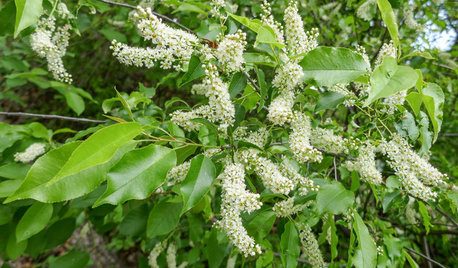'100 mile' gardening
schizac
17 years ago
Related Stories

KITCHEN DESIGNThe 100-Square-Foot Kitchen: Farm Style With More Storage and Counters
See how a smart layout, smaller refrigerator and recessed storage maximize this tight space
Full Story
GARDENING GUIDESPlant Black Cherry Trees for the Birds and Bees
Plant Prunus serotina in the Central and Eastern U.S. for spring flowers, interesting bark and beautiful fall color
Full Story
SHOP HOUZZShop Houzz: Fall Front Door Decor Under $100
Wreaths, doormats and decor for an autumnal entry
Full Story
SMALL KITCHENSHouzz Call: Show Us Your 100-Square-Foot Kitchen
Upload photos of your small space and tell us how you’ve handled storage, function, layout and more
Full Story
PRODUCT PICKSGuest Picks: 20 Fab Outdoor Finds, Almost All Under $100
Sprinkle these budget-friendly furniture, decor and tableware pieces around a porch or patio for an easy warm-weather update
Full Story
WORLD OF DESIGN100 of the Best New Zealand Homes on Houzz
To celebrate the launch of Houzz New Zealand, dive deep into some of the country’s most inspiring designs
Full Story
WORLD OF DESIGN100 of the Best Irish Homes on Houzz
To celebrate the launch of Houzz Ireland, be inspired by some of the most beautiful Irish designs on Houzz
Full Story
SMALL KITCHENSThe 100-Square-Foot Kitchen: One Woman’s $4,500 DIY Crusade
Teaching herself how to remodel, Allison Macdonald adds function, smarter storage and snazzier materials
Full Story
SHOP HOUZZShop Houzz: Bestselling Wall Art Under $100
Cover your walls in bright, trendy and classic signs and artworks
Full Story
PRODUCT PICKSGuest Picks: 20 Outdoor Pieces for Less Than $100
These thrifty finds will beautify your backyard without breaking your budget
Full Story





althea_gw
steve_o
Related Professionals
Londonderry Landscape Architects & Landscape Designers · Fitchburg Landscape Architects & Landscape Designers · Marina Landscape Architects & Landscape Designers · Panama City Landscape Architects & Landscape Designers · Salem Landscape Architects & Landscape Designers · Lemoore Landscape Contractors · Pleasanton Landscape Contractors · Raytown Landscape Contractors · Lexington Carpenters · Mission Viejo Carpenters · Syracuse Fence Contractors · Chatsworth Fence Contractors · Laguna Hills Fence Contractors · Oceanside Fence Contractors · Teaneck Fence Contractorsrocket_girl
steve_o
rocket_girl
melissa_thefarm
steve_o
pablo_nh
schizacOriginal Author
squeeze
mimsic
rocket_girl
mimsic
squeeze
steve_o
rocket_girl
althea_gw
seraphima
melissa_thefarm
naplesgardener
mimsic
althea_gw
calliope
postum
steve_o
hunt4carl
steve_o
merrygardens
schizacOriginal Author
aachenelf z5 Mpls
calliope
skagit_goat_man_
calliope
steve_o
calliope
steve_o